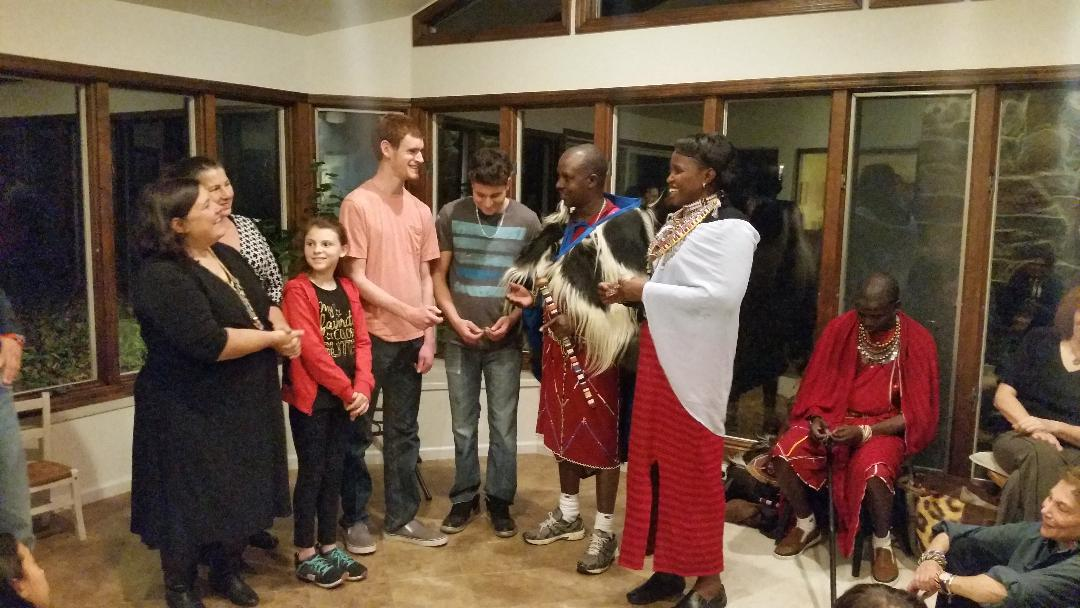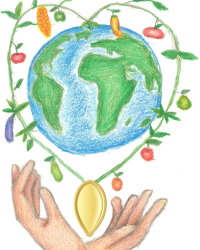The History of Seed Solution
By Celeste Hampton, CEO
Seed Solution is a 501(c)(3) non-profit that began as a 4-H children’s project to build a local seed bank. My 4-H kids insisted that we use organic seeds and very industriously cleaned and packaged them, then donated thousands of seed packets to the local library. We also made special needs gardens in the US. The next year, we asked for donations from seed companies and received hundreds of pounds of seeds. The 4-H club spent countless hours sorting and shipping seed packets to hungry people in Venezuela, Liberia, Zimbabwe, Nepal and many other places. The seeds were carried by Doctors Without Borders, Rotarians, or just travelers willing to do the work. We were very proud of our kids – and, most importantly, they were amazed when G. Umaru Sheriff of Liberia came to the USA and personally thanked them for the lives they saved during the Ebola crisis with just a 50-pound box of seeds.
Mr. Sheriff has embraced his position and has become a 4-H ambassador for all of Africa. He is on the International 4-H council. This team has established a coalition of 20 African countries creating 4-H Youth Development programs to assist young people in learning to become proficient at growing food.
As the children grew older, the 4H club ended, but our mission continued and became Seed Solution.
Teach a man to fish and you feed him for life. The same goes for seeds. This is why we find our mission so inspiring: we are creating self-sustaining solutions. Not only can people feed themselves, but they can grow enough extra to make a living.
The surprising thing is that many of the people that we work with have little or no agricultural knowledge. The Maasai are cattle herders. They don’t know how to grow food, but are trying to survive as a culture and are willing to learn. We try to help connect our agriculture outposts with him for resources
We have established many “outposts” ourselves around the world and have found respected advisors with non-profit connections for about 12 of them. They lead their teams with agricultural projects, distribute seeds, and help us to understand the issues and needs of that area.
A we progressed, or mission broadened, as we believe that every child has a right to food, water, and education.
We have worked with schools, delivering over 48 laptops to Africa. We have promoted education, equality, and even the fight against FGM, Female Genital Mutilation. Some areas in drought regions need support to get ready for seeds. We have been able to fund a variety of projects, such as 8 school water towers, hand-washing stations, and helped to acquire good land to rent or buy for crop-growing.
We branched further into Africa through a connection with a Maasai tribal chief, and this led to a partnership with Maasai Girls Fund, which works to educate girls and stop child brides and FGM in Kenya. Chief Ole Timpanko visited the US and took 50 pounds of seeds back to Kenya:




